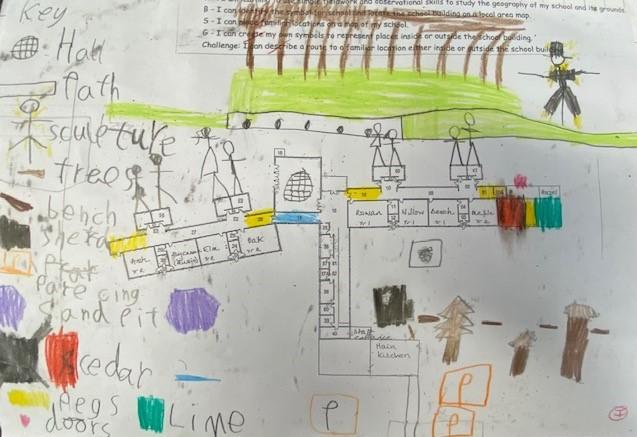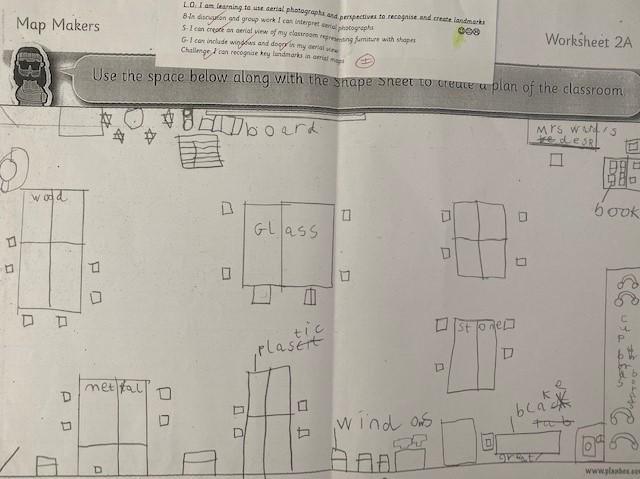Geography
Intent
At The Alderton Infant School, we believe that ‘Everyone Can Fly’. This is reflected in our geography curriculum and growth mindset approach; we encourage and support all children to develop a good understanding of their local environment and their world.
Children learn about their local area, the UK and the wider world. They compare human and physical characteristics, developing an appreciation for these and the diverse world in which we live.
Our children are taught to:
- Make comparisons and links between the countries learned about, including: features of the landscape; seasonal and daily weather patterns; culture and way of life.
- Use maps, atlases and globes, as well as online content to locate countries, continents and oceans.
- Demonstrate independence through fieldwork and observational skills when exploring our local area.
- Use subject specific vocabulary to describe key human and physical geographical features.
- Work collaboratively to develop their map skills; practise directional and locational language through partner and group work.
- Participate in discussion about the environment around our school and through first-hand observation, enhance their locational awareness.
Implementation
At Alderton Infants, we use the PlanBee scheme of work to support our planning which enables a clear progression of skills across the school. Each term, a new topic is explored which allows children to build upon previously learned skills and apply subject specific vocabulary in a new context.
- High quality, up-to-date resources are used to support learning including globes, maps, aerial photographs, atlases. Online resources such as videos and Google Earth enrich learning by encouraging discussion and fascination about the world.
- Teachers plan carefully and use a range of activities to develop understanding, including: partner work, role-play, use of the outdoor space, quizzes and group presentations (to name a few).
- Children are always encouraged to ask questions during lessons to enhance their learning and deepen understanding.
- Subject leaders seek out cross-curricular links to make learning engaging and promote use of subject specific vocabulary in different scenarios.
- We use working walls to encourage children to use newly learned vocabulary in their written work and to refer back to.
- Our school library is well stocked with non-fiction books about the world in which we live and children are introduced to geography focused texts within guided-reading sessions.
Impact
The National Curriculum purpose of study for Geography (2013) reads: ‘A high-quality geography education should inspire in pupils a curiosity and fascination about the world and its people that will remain with them for the rest of their lives’.
Our teaching equips pupils with knowledge about diverse places, people and natural and human environments.
We monitor progress in geography by:
- Conducting a termly book scrutiny which informs progress and impact of teaching. Work samples are collected in a ‘floor book’ per topic per year group.
- Carrying out learning walks enables pupil questioning and checks understanding of geographical vocabulary as well as skills learned.
- Regular staff meetings with feedback from each year group about our new scheme of work, resources required and pupil engagement.
- Pupil progress meetings to ensure gaps in knowledge are filled and pre-teaching interventions are set up.
By the end of Key Stage One we aim for all children to achieve age related expectations in Geography and that they will be equipped with the geographical knowledge required to continue their journey into Key Stage Two.
Locational Knowledge
"Asia is the largest continent in the world. China is in Asia and has a Great Wall" (Freddie, Year 2)
"Africa has the world's longest river, the river Nile" (Riya, Year 2)
"In China, they sometimes celebrate with dragons and they have pandas in the bamboo forest" (Blake, Year 2)
"France is in Europe and there is a famous tower called the Eiffel Tower" (Abbas, Year 2)
Human and Physical Geography
Throughout their time at Alderton Infants, the children are encouraged to observe and discuss both seasonal and daily weather patterns. Year 1 have made their own weather forecast and presented this to their friends!
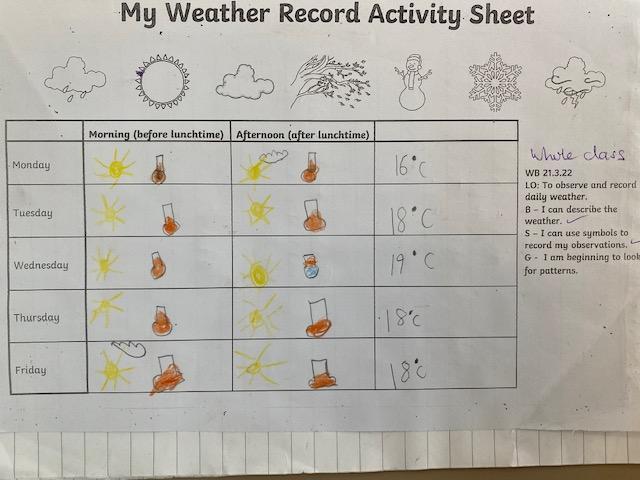
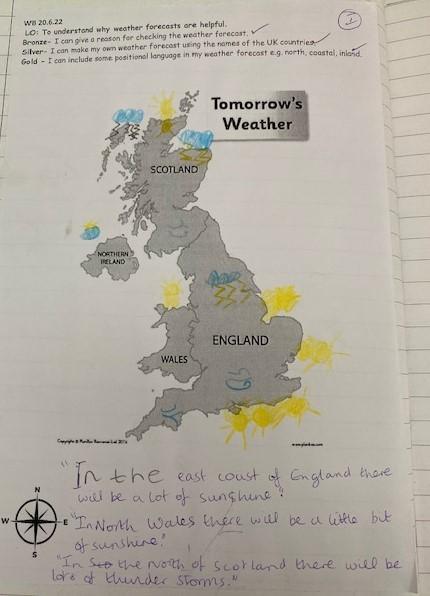
Place Knowledge
By the end of KS1, the children have compared our local area with other locations around the world. Year 1 have investigated life in the Philippines and Year 2 have looked in depth at Kenya, Africa.
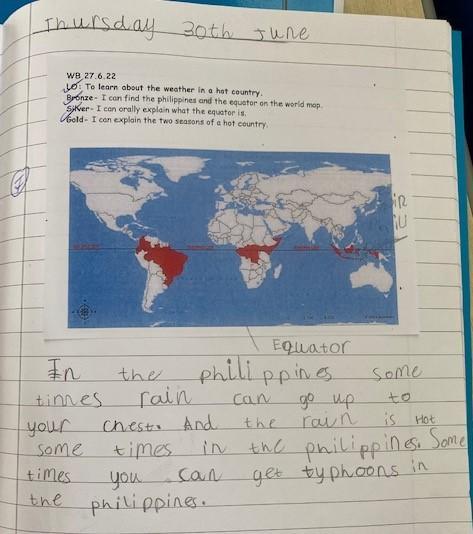
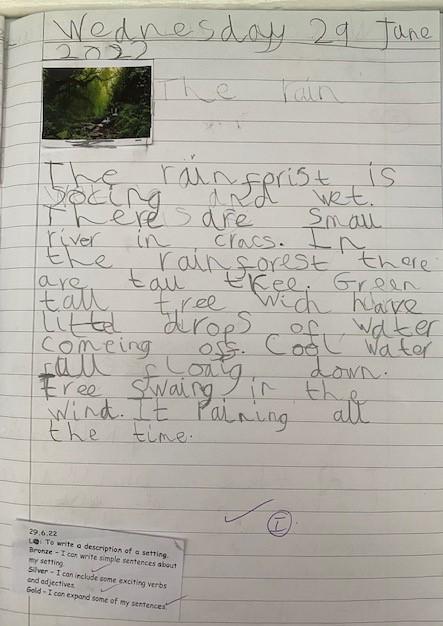
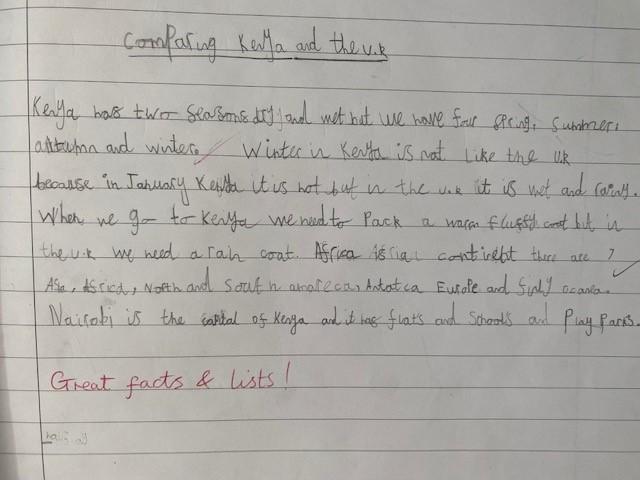
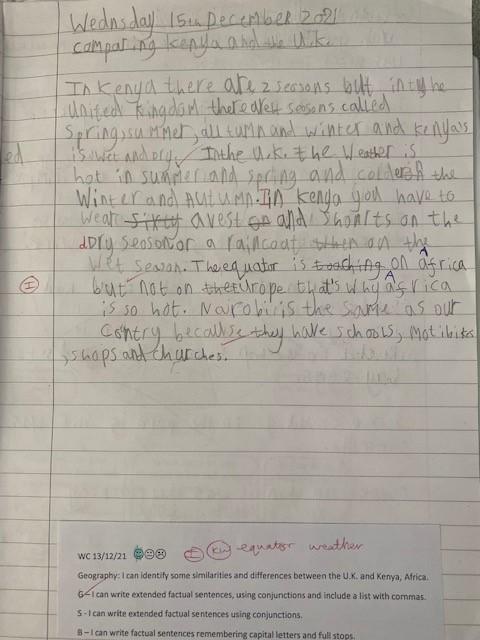
Geographical Skills
At Alderton we are fortunate to have a fantastic outdoor area which enables us to use simple fieldwork skills to study the geography of the school and its grounds. By the end of KS1 the children have developed their cartography skills and use these to make an aerial plan of the classroom as well as maps by including symbols in a key.
